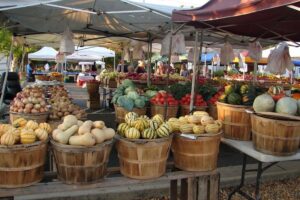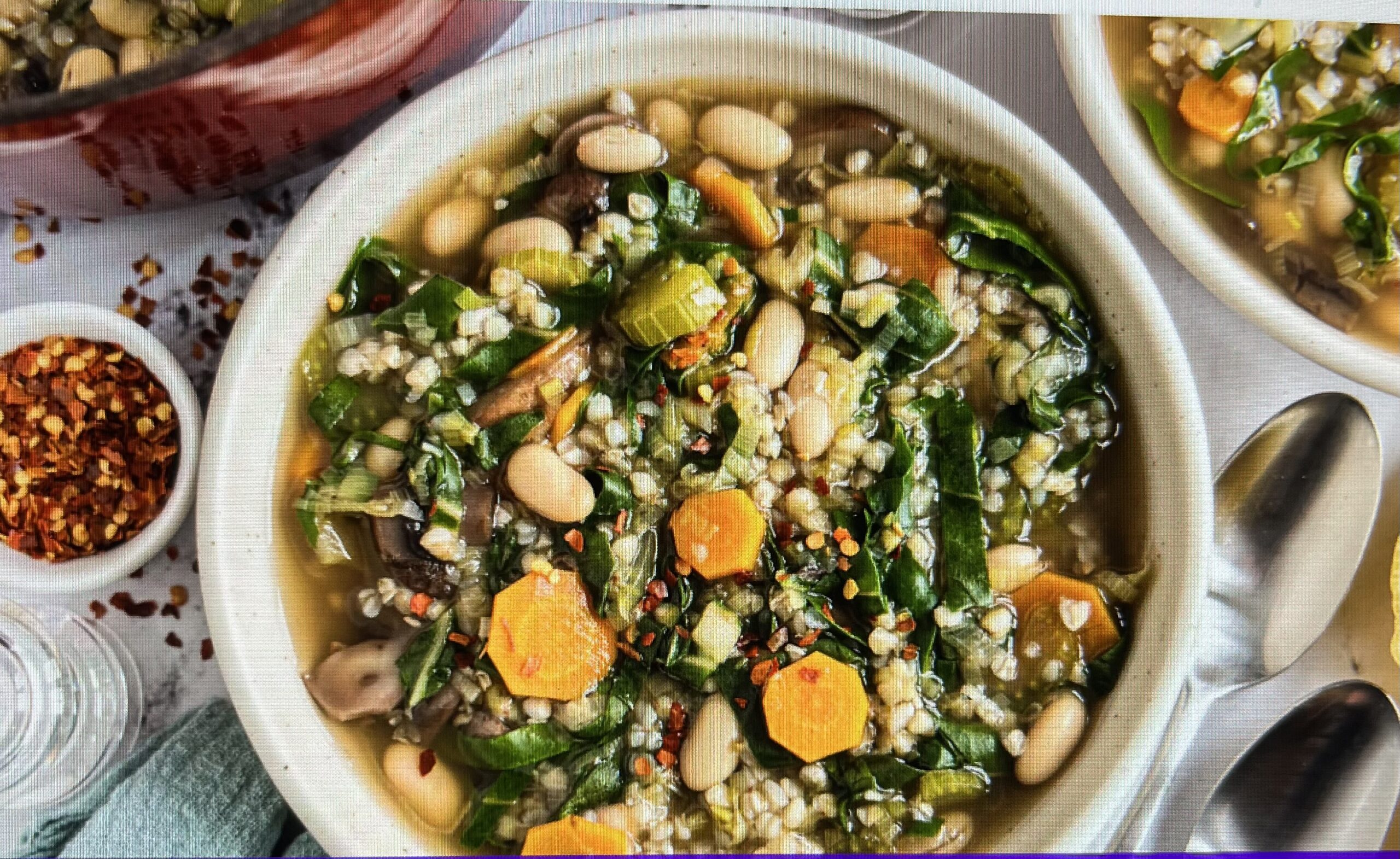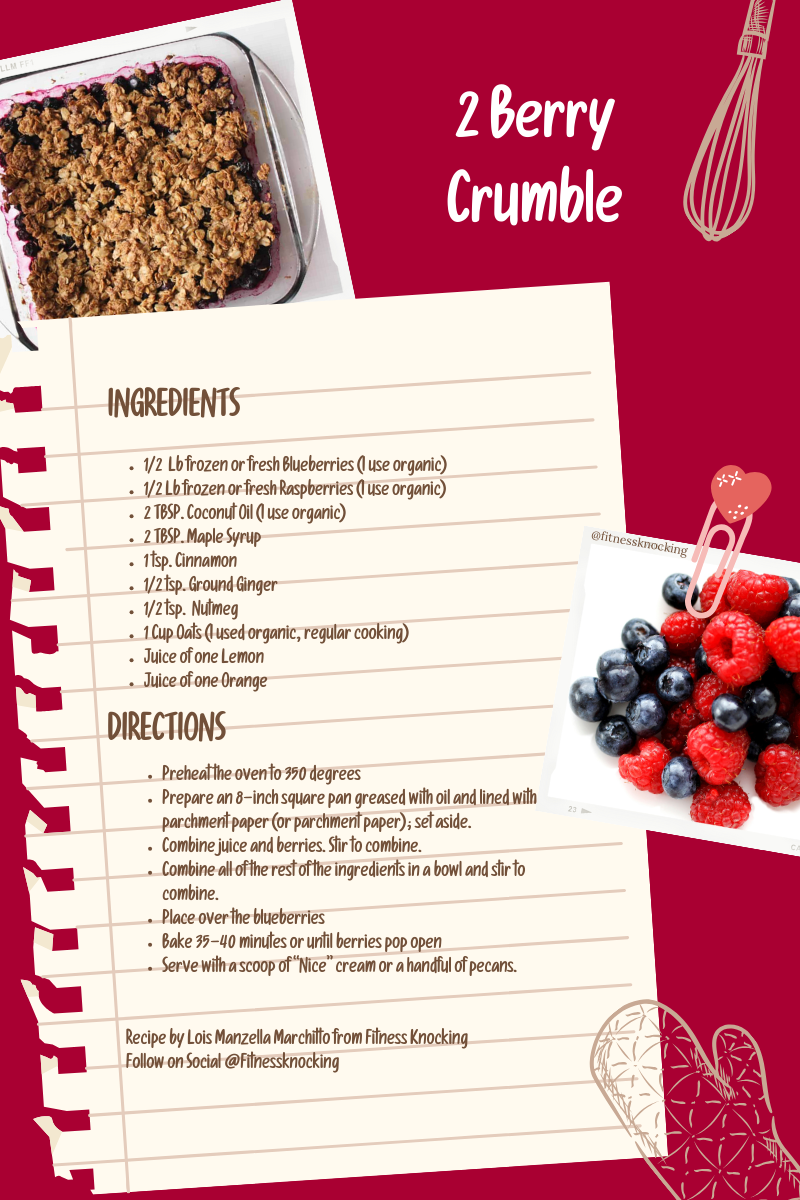
by MaryEllen Zung, Certified Holistic Health Coach, Lakeland Hills YMCA
Is knowing where your food comes from really important? It’s hard enough deciding what to eat these days for good health with our friends and family telling us about their keto, low-carb, vegan, and paleo plans, or ‘lifestyle’s” as some describe. Then there is the time it takes to plan, shop for local, fresh, organic foods, and cook healthy meals.
There are so many convenient time-saving options with take out, Grub-Hub, neighborhood delivery, on-line delivery meal services, restaurant chains on every corner, and even easy pick up meals at grocery stores. With all of this convenience fewer people are planning and cooking at home now, and most do not know where their food comes from.
Why Is knowing Where Our Food Comes From important?
Why should we cook and eat seasonally, and why is it important to stay in touch with where our food comes from?
Here are a few reasons to stay in tune and know what you are eating.
Better Flavor
Ripe fruits naturally encourage us to eat them because they are more colorful, juicier and more fragrant. They taste better too!
In nature, seeds are spread when the fruit is eaten. This ensures a new crop of plants and fruit and benefits both the plant and those who eat them. Just think how good asparagus tastes in the spring and apples in the fall.
Better Nutrition
Plants that ripen on the vine have more time to develop nutrients. They are at their peak of nutrition and that’s when we want to be eating! In fact, as soon as plants are harvested, their nutritional content begins to decline.
Out-of-season produce is usually picked before it is ripe and may be shipped from thousands of miles away. It spends many days in transport, losing some of the key nutrients along the way.
Save Money
Buying in season is the best time to buy. Just think about it. A lot of watermelons in summer means the cost is low! It is cost effective for farmers to grow when growing conditions are optimal. They don’t need to buy as much fertilizer and additives because Mother Nature is helping the plants grow. Farmers also don’t need to pay for long transportation or storage costs. These savings are passed down to us.
Save the Planet
Already mentioned was the cost involved for fertilizer, pesticides, transportation, and refrigeration, but these factors are also detrimental to the health of our environment.
Here are a few statistics to consider…
- The average distance most produce is shipped in US is almost 1,500 miles.
- It takes 4 to 7 times more fuel to produce and distribute conventional food compared to local and regional foods.
- 5 to 17 times more CO2 is emitted in the process.
- If every American ate one meal a week with locally and organically raised meats and produce, the US would reduce oil consumption by more than 1.1 million barrels a week.
Transporting produce over long distances alone decreases its nutritional value, increases their cost, and is bad for the planet. And that is just transportation, we haven’t even discussed the chemicals used in fertilizers and pesticides which eventually deplete the soil, and contaminate our water and food supply affecting our lakes and oceans which in turn affects the food supply there as well.
Eliminate Toxins from our Food
These same toxins, pesticides, waxes, chemicals and leave a residue on and in our foods. And we in turn eat them.
By choosing seasonal when less of these chemicals are used, we are getting a cleaner product.
Local smaller farms may not have organic certification but chances are good that they are using organic practices. Talk to your farmer or grocer at the beginning of the season to learn about these farming practices. Support them by buying local.
Connect with your Community
Getting to know where your food is coming from, who is growing your food and how they do it also makes you feel more connected to that whole process. It’s as easy as joining a CSA (community supported agriculture) or food share program, supporting your local farmers’ market, or joining a community garden to grow your own vegetables.
Get Variety in your Diet
Eating with the seasons forces us to eat what is available at that time, which is actually good for us. It encourages us to try new foods and use them creatively. This in turn can help keep us healthy by rotating foods throughout the year. And variety in diet prevents us from developing food intolerances.
Home Cooking
Eating with the seasons encourages us to learn new ways to prepare these foods, which means you may need to learn to cook! Home cooking is better for our health because we get away from processed foods, and packaging. You know what you are eating and you’ll consume less sugar, chemical additives, salt and unhealthy oils.
Seasonal Balance for our Bodies
This rotation of foods also ensures that we are eating foods that have evolved to support our bodies’ seasonal needs. For example, in spring, our bodies are waking up from a long winter. We crave the tender, leafy vegetables that represent the fresh new growth and energy of this season. In summer, we stick with light, cooling foods. In winter, we turn even more exclusively toward warming foods.
Meet A Farmer
Many of us don’t know a farmer, or have never even met a farmer, unless of course you are a farmer, have a farm share, or go to a farmers’ market. For most Americans we procure our food from large grocery stores, bodegas, restaurants, and on-line meal delivery services.
If you’d like to get closer to learning where your food comes from, start by going to meet a farmer, or with any of the suggestions above.
MaryEllen Zung is a Certified Holistic Health Coach. She can be reached at coachmaryellen@outlook.com





